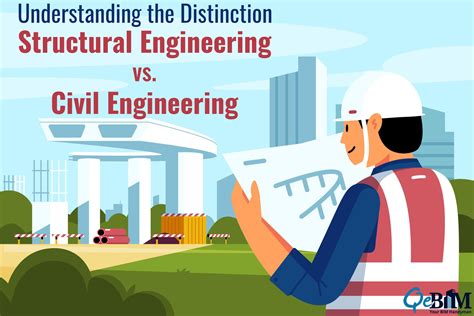Introduction
The fields of civil engineering and industrial engineering share similarities in their focus on design and optimization, but they differ significantly in their scope and objectives. Civil engineers specialize in the design and construction of physical structures and infrastructure, while industrial engineers focus on improving processes and systems within an organization. This article presents a comprehensive comparison of these two engineering disciplines, exploring their similarities, differences, career paths, and job responsibilities.

Similarities
- Problem-Solving: Both civil and industrial engineers use analytical and problem-solving skills to address challenges in their respective fields.
- Design and Optimization: Both disciplines involve designing and optimizing systems to meet specific requirements and improve efficiency.
- Technical Knowledge: Both civil and industrial engineers require a strong foundation in mathematics, physics, and engineering principles.
Differences
- Scope: Civil engineering focuses on the design and construction of physical infrastructure, including buildings, bridges, roads, dams, and water treatment facilities. Industrial engineering focuses on optimizing processes and systems within an organization, such as manufacturing, supply chain management, and healthcare.
- Materials: Civil engineers work primarily with physical materials, such as concrete, steel, and wood, while industrial engineers focus on optimizing processes and systems involving human factors, equipment, and data.
- Work Environment: Civil engineers typically work on construction sites or in offices, while industrial engineers often work within organizations, such as factories, warehouses, and hospitals.
Career Paths
Civil Engineer:
– Design Engineer
– Project Manager
– Construction Manager
– Structural Engineer
– Geotechnical Engineer
Industrial Engineer:
– Operations Manager
– Supply Chain Manager
– Manufacturing Engineer
– Data Analyst
– Process Improvement Engineer
Job Responsibilities
Civil Engineer:
– Design and analyze structures
– Develop construction plans
– Supervise construction projects
– Manage budgets and schedules
– Ensure safety and compliance
Industrial Engineer:
– Analyze and improve production processes
– Design and implement quality control systems
– Manage supply chains
– Optimize facility layouts
– Train and supervise employees
Salary and Job Outlook
According to the U.S. Bureau of Labor Statistics (BLS), the median annual salary for civil engineers was $88,220 in May 2021, while industrial engineers earned a median annual salary of $92,290. The BLS projects that both occupations will experience continued growth in the coming years due to increasing infrastructure needs and the need for improved efficiency in industries.
Tips for Choosing the Right Field
- Interests: Consider your personal interests and what type of work you find most fulfilling.
- Strengths and Weaknesses: Assess your strengths and weaknesses to determine which field aligns best with your abilities.
- Job Market: Research the job market in both fields and the availability of opportunities in your desired location.
- Professional Development: Consider the professional development opportunities available in each field and which one aligns with your career goals.
Common Mistakes to Avoid
- Assuming the Fields Are Interchangeable: While there are similarities, civil engineering and industrial engineering are distinct disciplines with different career paths and responsibilities.
- Underestimating the Importance of Communication: Both civil and industrial engineers must be able to communicate effectively with a variety of stakeholders, including clients, contractors, and colleagues.
- Ignoring Technological Advancements: Technology is rapidly evolving in both fields, and it is essential to stay abreast of the latest developments to remain competitive.
How to Step-by-Step for Choosing a Field
- Identify your interests and goals.
- Research both fields and their job requirements.
- Consult with professionals in both fields.
- Shadow an engineer in each field to gain practical experience.
- Make an informed decision based on your research and experiences.
Conclusion
Civil engineering and industrial engineering are two distinct and rewarding fields that offer a variety of career opportunities. Civil engineers play a vital role in creating and maintaining the infrastructure that we rely on, while industrial engineers are responsible for improving efficiency and productivity within organizations. By understanding the similarities and differences between these two disciplines, prospective engineers can make an informed decision about which field is right for them.
